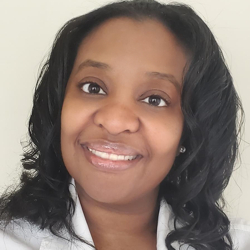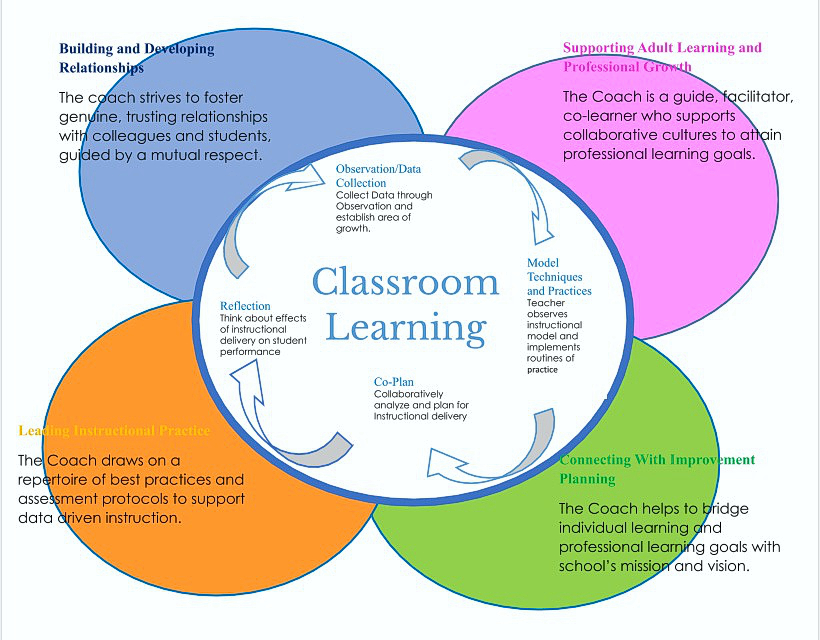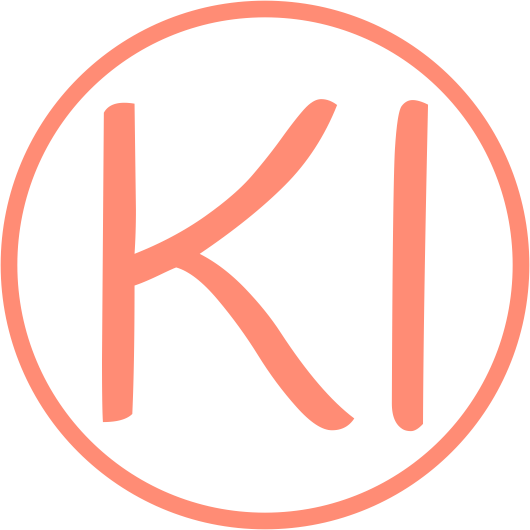

As an Educational Leader, I have developed confidence in my ability to engage, guide and instruct. My practical experience has given me valuable exposure to instructional environments that embrace academic excellence, learning communities in the 21st century, and a student-centered approach to learning. My continued goals are to empower teachers and cultivate leadership skills. By encouraging educators to continually learn and develop their talents, I hope to build collaborative inclusive learning environments.
I am able to bring evidence-based practices into your classrooms by working with and supporting teachers and administration with the goal of increasing student engagement, improving student achievement, and building teacher capacity. In addition, my strong organizational and analytical skills will help me to optimize your institution’s abilities to meet goals. Taking command of an operation or project, then guiding it to new performance levels, is my greatest strength. My education, experience, and commitment help me to embrace the opportunities and challenges that an educational institution brings. After contributing to the growth and success within several educational environments in the past 21 years, know that my proven leadership skills, strong commitment to high ethical and professional standards, and flexibility in devising proactive responses to changing socioeconomic conditions would allow me to make a significant contribution to your institution.
The purpose of an educational institution is to help mold the minds of the future. I believe that student experiences within a school ultimately impacts the trajectory of their success. By building a rich classroom environment that accepts the responsibility to support and encourage the unique ways in which children learn while teaching for understanding, links students and subject matter in a responsive curriculum while building self-esteem. But this institution is only as good as its teachers and leaders. I read that “The mediocre teacher tells. The good teacher explains. The superior teacher demonstrates. But the great teacher inspires”. Teachers who are thought of as “great” are usually passionate about teaching. They seem to love teaching and share this love with the students in their class. These teachers know their subjects well and teach outside of their textbooks. For it is imperative that educational institutions invest in their teachers, ensuring that they are well equipped with the right skills and tools to improve the effectiveness of their teaching methods and delivery, through training, constructive feedback sessions and other capacity building initiatives. Because a great teacher is one who is able to explain and demonstrate concepts in a variety of ways for a variety of different learners and learning styles. They constantly develop, plan and organize creating objectives and goals which seek to implement them. It is then when students are engaged in learning, and are exposed to new and exciting ideas as well as being shown appropriate approaches to problem solving that they use these strategies to excel.
My path to fulfilling my vision of becoming an Effective Leader, is first being a “Leader of Leaning”. The best Leaders are the best learners. I am passionate about excelling and dedicated to doing it through continual learning. Professional Development allows building a core of knowledge that becomes an essential part of supporting educators with 21st century progressions, best pedagogical practices such as differentiating teaching, developing hands-on experiences, and designing interdisciplinary programs that support state and local expectations.
I also believe that a great leader surrounds themselves with people who will help cultivate and develop their ability through a curated set of resources. That’s having the right mentor, collaborating with experienced teachers and educators, and learning the tools required to offer the knowledge and skills set to be an effective leader.
Leadership is indeed a learning process. The approach to becoming a great leader is to constantly develop our traits and attitudes, and then manipulate those for positive growth. The ability to cultivate our leadership through professional learning, transformational educational environments and professionals with a passion for growing, produces the most important and enduring improvements through a cycle of self-discovery and learning.
As an educational leader, I draw upon the strength of my institution to cultivate and encourage professional growth, introduce new teaching and learning strategies that have a research base which best serves the needs of children and educators by the continuous improvement of education through:
- Professional development
- Effective participation in shaping education policy
- Embracing technology that enhances learning
- Making informed choices about textbooks and materials
- Fostering an environment that cultivates teaching and learning practices
- Internalization of content
- Promoting best pedagogical practices
Knowing our profession’s evolving practices and identifying the competences in which we need to succeed demands that we ask questions, enhance pedagogical content knowledge and, most importantly, develop and cultivate collaborative partnerships. Leadership is a learning process. A key characteristic for leaders to have is the willingness to learn and grow in their own professional development. This growth-focused learning can take various shapes within an organization. As an instructional leader, continuing to learn, refine, and implement professional development to increase content and pedagogical knowledge, as well as knowledge about learners and learning is imperative to moving a novice teacher into an effective instructor.

High quality and ongoing training, as well as a professional learning community, are needed to help coaches develop the skills to identify and translate the elements of effective teaching to teachers. Utilizing the Coaching Cycle allows me to provide a systematic and research-based practice to ensure development of effective teachers. Much like learning for students, learning for teachers should be guided by data driven practices and standards based. Also, teacher feedback must be based on documented experiences, including knowledge gathered from observations within the classroom and effects on student growth. Using guidelines, recording mentoring and coaching experiences, in addition to, gathering data on various aspects of classroom practice provides a stable framework to concentrate on continued growth in content knowledge and instructional delivery. The use of guidelines, coaching interaction documentation, and data collection ensure effective teaching practices as well as application of knowledge to implementation with fidelity.
Education is an unending learning process in which educational technology, guidelines for school districts, and standards for curricula are continually changing. This makes it difficult to keep up with trends and best practices. Professional teacher development increases teacher’s ability to be more knowledgeable about curriculum allowing them to produce useful and personalized lessons for today’s students. Continuing career development is such an integral aspect of teacher preparation. It lets the teachers keep upgrading their professional skills and awareness. The new generations have a distinct learning style than the previous ones. Teachers who have been in the profession for several years are usually hesitant to change their methods of teaching. However, Professional Development will encourage them to keep in contact with the latest trends in the education sector and help them improve instructional practices.
Attempting to define my Professional Goals over the next 5 years seems like such a daunting task, because it is narrowing such boundless aspirations. When I began my path as a teacher over 22 years ago, I never would have thought it would lead to being a mentor, a coach, a leader. So, that being said, I will begin with the end in mind. I see myself ending my professional career consulting, assisting new teachers with starting strong. Embracing their challenges not as barriers but as opportunities to grow. I enjoy modeling and engaging in healthy banter about instructional practices and strategies of how kids learn best. It is these conversations that create ”great teaching”. And I want to be a part of this process. I recognize that my future goals may change with experience, practice and perspective, but I remain steadfast with transforming and redefining teaching experiences for educators.
|
Instructional Coach 2018-2023
|
|
STEM Program Specialist 2017-2018
|
|
Math Interventionist 2016-2017
|
|
Leadership Team 2016-present
|
| 2022 |
ESOL Certification
Metropolitan Regional Educational Service Agency, Smyrna, GA 30080
|
| 2019 |
Growing Readers Early Literacy Certification
Metropolitan Regional Educational Service Agency Smyrna, GA 30080
Teacher Leader Endorsement
Metropolitan Regional Educational Service Agency Smyrna, GA 30080 |
| 2018 |
STEM Certification
National Institute for STEM Education, Houston, TX 77056 |
| 2009 |
Gifted Endorsement
Atlanta Metropolitan Regional Educational Service Agency, Smyrna, GA 30080 |
| 2007 |
Reading Endorsement
Georgia State University, Atlanta, GA 30303 |
| 1996-98 |
Master of Arts Degree Curriculum and Instruction
Michigan State University, East Lansing, MI 48824 |
| 1991-96 |
Bachelor of Arts Degree Elementary Education
Michigan State University, East Lansing, MI 48824, Minors: Psychology/Social Studies |
| 2020-Current |
Dekalb County Schools
Dresden Elementary
|
| 2015-2020 |
Atlanta Public Schools
Harper Archer Elementary
|
| 2007-2014 |
Clayton County Schools
Roberts T. Smith Elementary
|
| 2005-2007, 2014-2015 |
Fulton County Schools
Oak Knoll / Randolph Elementary
|
| 1998-2005 |
Detroit Public Schools
Detroit, MI 48221
|
|
TNTP Training Program
Participated in a systematic transformational program that provided professional learning in Coaching, Assessing Classroom instruction and systematic reform practices to transform educational institutions.
|
|
|
RELAY / GSE Leadership Program Training
Participated in an intense practice-based program that used to prepare school and system leaders to improve skills in core instructional and cultural leadership to help teachers address instructional practices and student culture.
|
|
|
Components of Balanced Literacy and Strategies for the Classroom
Developed and conducted Professional Development on the use and benefits of a well-balanced literacy program.
|
|
|
Data Review Protocols
Training and professional development opportunities regarding data collection technology and data analysis can support all staff members in the responsible and consistent use of data.
|
|
|
Unit Internalization
Implemented a protocol plan for teachers to use to help internalize and deepen their understanding of Math and Literacy Curriculum to prepare for and deliver high-quality instruction.
|
|
|
Math Instructional Strategies
Planned and presented a professional development session, “Critical Thinking for All Learners”, where teachers were given mathematical questioning practices and problem solving strategies to help foster and develop a habit of critical and high order thinking amongst students in their classroom.
|
|
